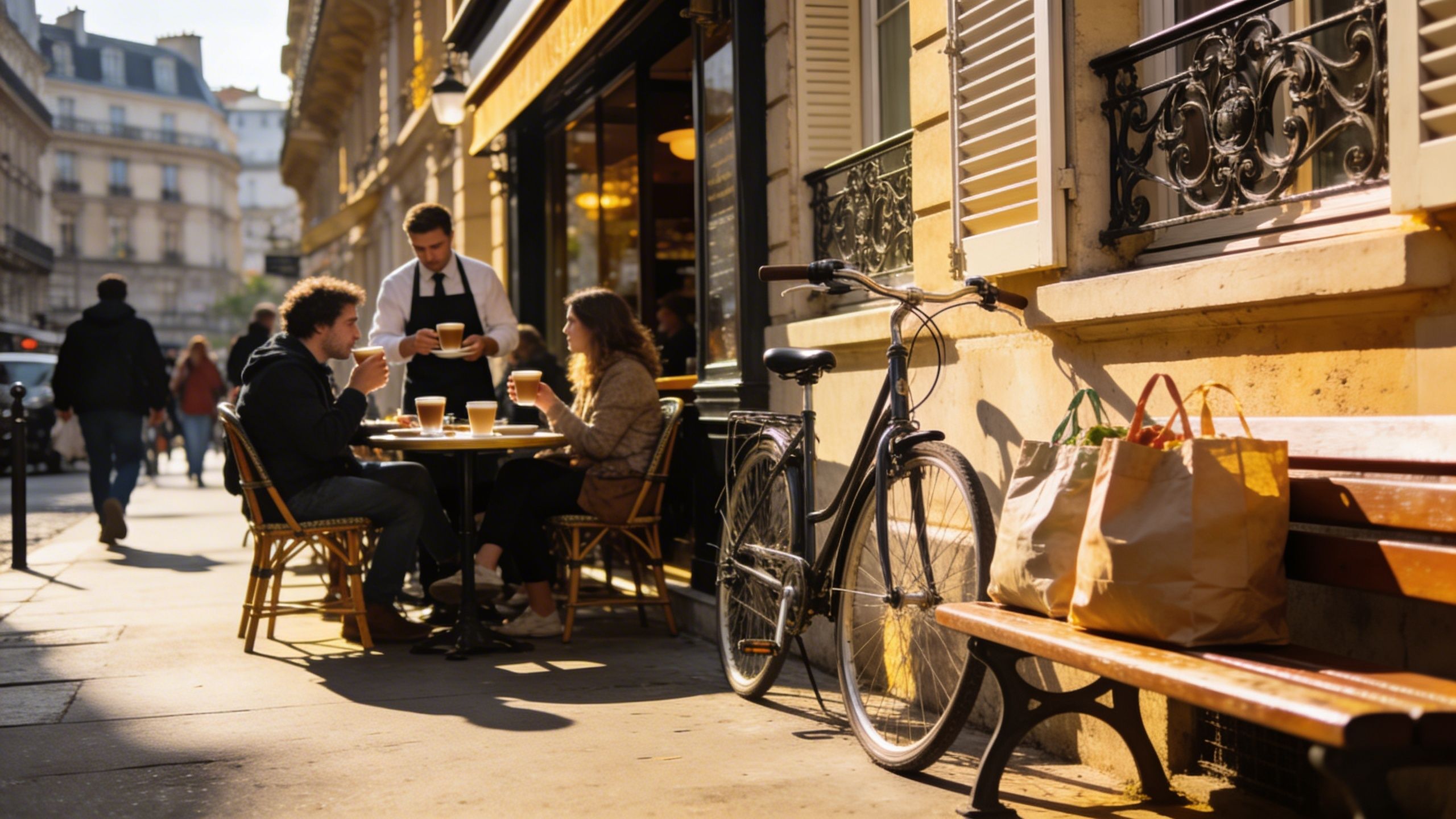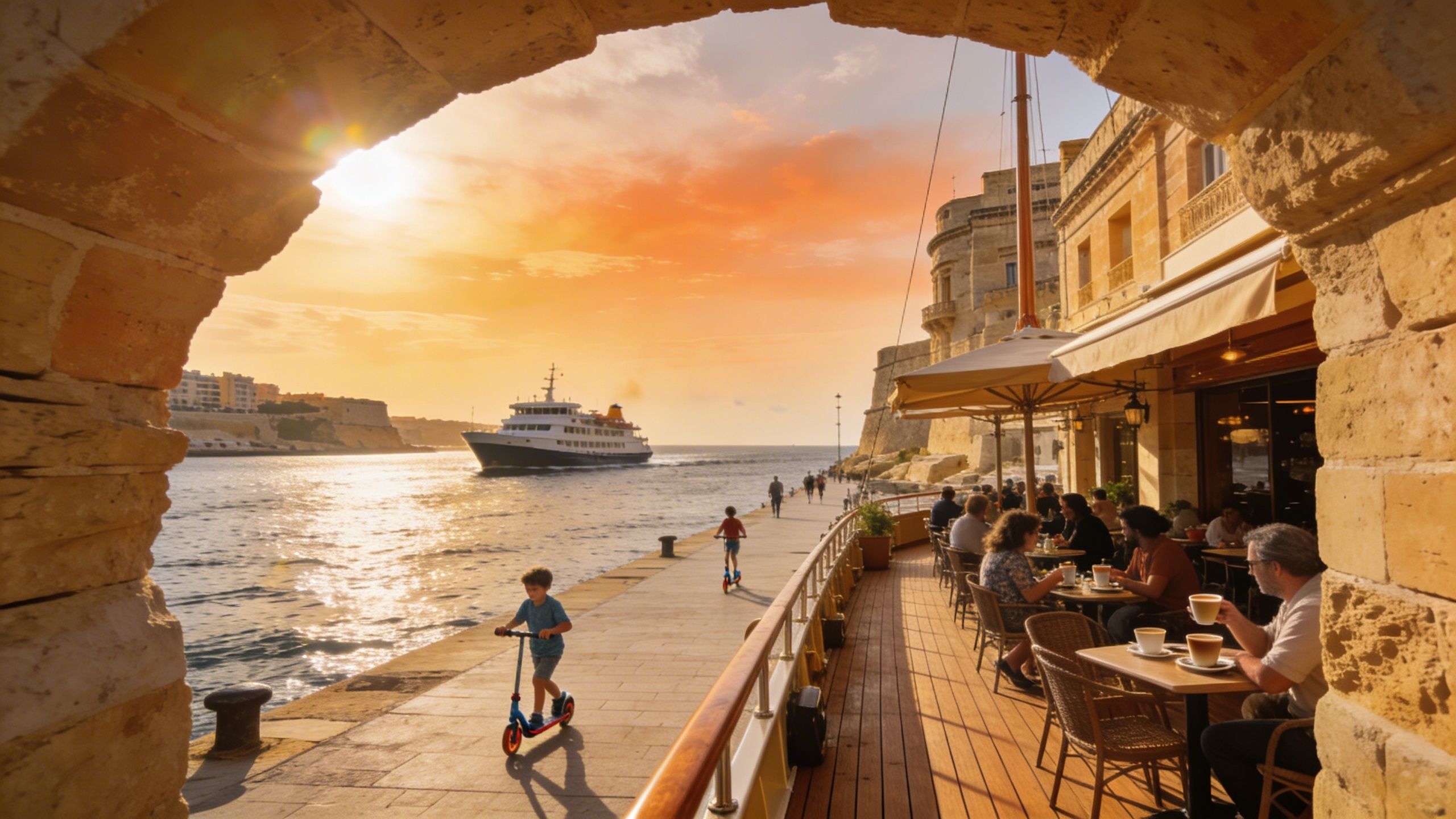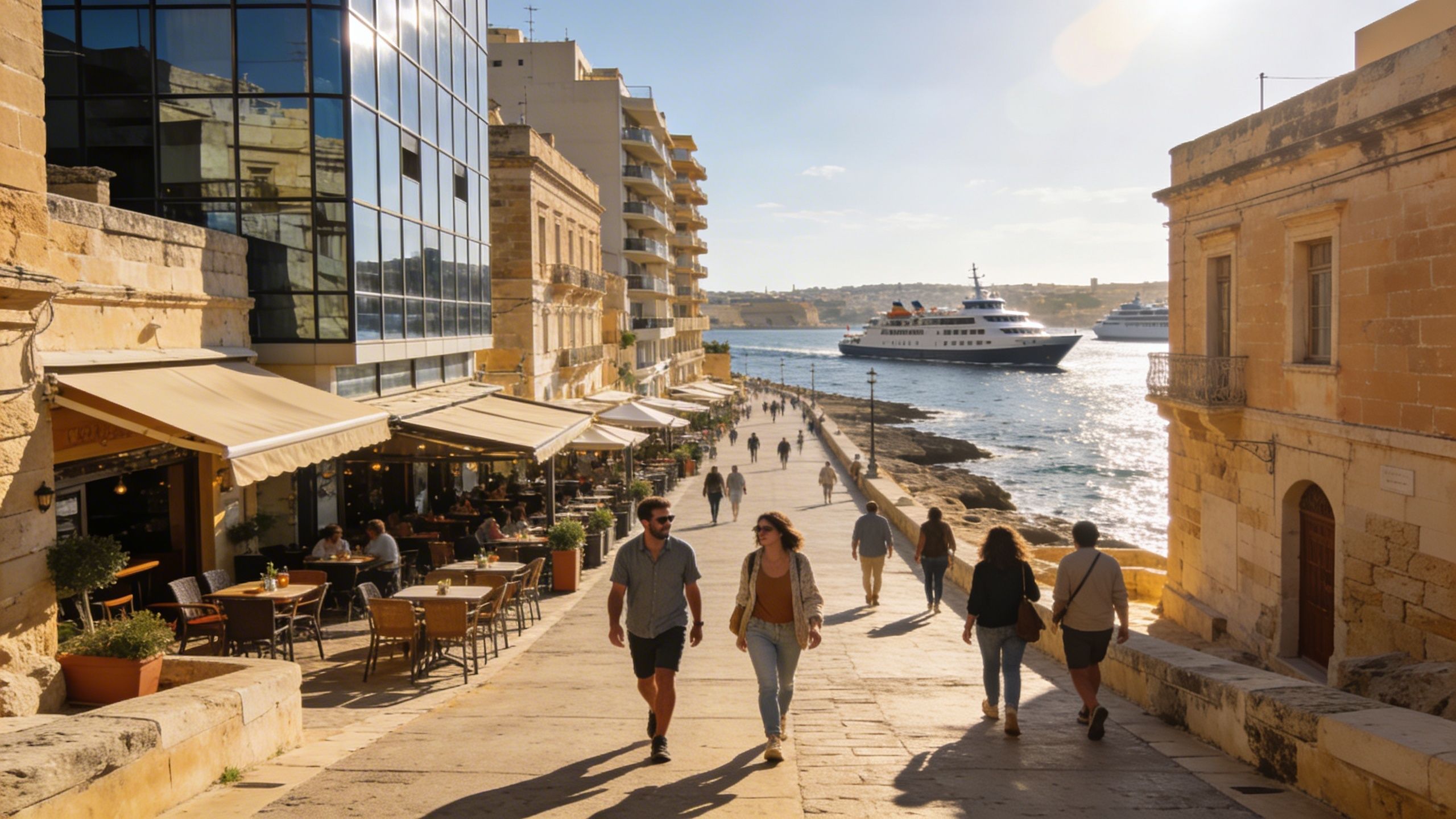Urban France: Surprising City Opportunities
Urban France is not one market: Paris, Lyon, Marseille and others each offer distinct lifestyles and price signals — use local data (INSEE, notaires) to match life with value.
Imagine stepping out at 9 a.m.: a boulangerie on Rue des Rosiers, the smell of fresh croissant, a trambell in the distance and a neighbour buying late-summer tomatoes from a marché stall. That scene plays out differently from Paris to Marseille to Lyon — different rhythms, different prices, same unmistakable French cadence. For many international buyers the instinct is to lump 'urban France' into one expensive category. The reality is more textured; recent INSEE and notaires data show pockets of stability and even recovery across city markets.
Living the French Urban Life
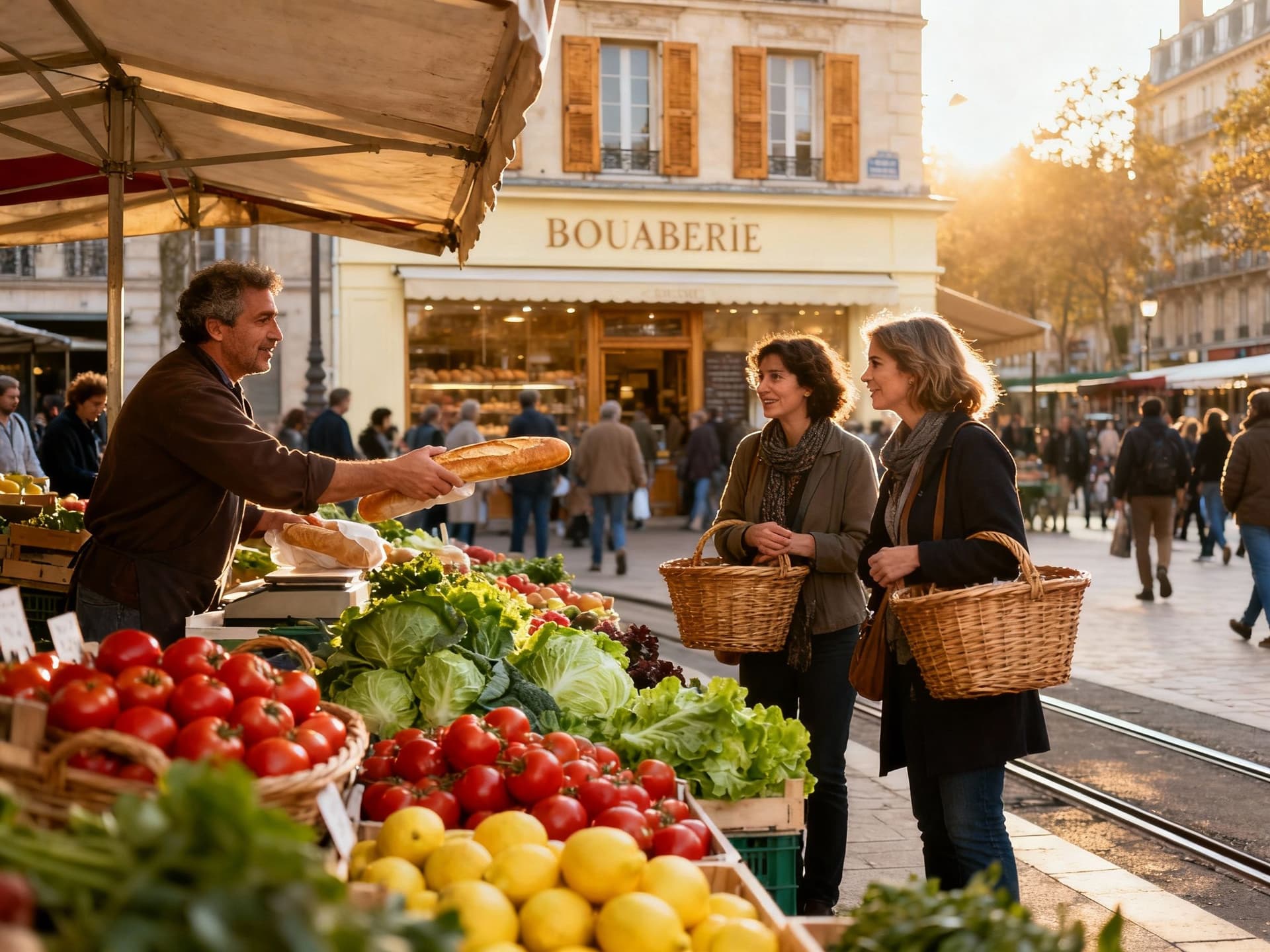
Urban life in France is a set of micro-rituals. In Lyon, Saturday mornings are for market aisles at Halles de Paul Bocuse; in Marseille, afternoons are for cassis and the Vieux-Port; in Bordeaux, evenings are slow and wine-centred. Those everyday scenes shape what you buy: a compact apartment for café-facing life, a larger flat with a balcony where chefs and creatives gather, or a town-house in a quieter arrondissement with schools and parks nearby. Understanding local tempo matters as much as price per square metre.
Paris: Density, culture and surprising turns
Paris remains singular: intense cultural density, immediate access to museums, and compact living. Yet the city has seen population dips and a slow rebalancing — a fact that softens price pressure in parts of the centre. Expect smaller living footprints, strong transport but higher service and renovation costs. For buyers chasing lifestyle, the trade-off is unavoidable: you buy proximity and culture, not square metres.
Lyon & Nantes: Urban quality without Paris premiums
Lyon and Nantes trade some of Paris’s headline appeal for more liveable streets and faster value recovery cycles. Both cities host tech and service clusters, leafy neighbourhoods and markets that shape daily life. International residents often find a higher quality of life per euro here: cafés, riverfront promenades, and shorter commutes. These are cities where lifestyle and affordability meet in practice, not just in brochures.
Making the Move: Practical Considerations
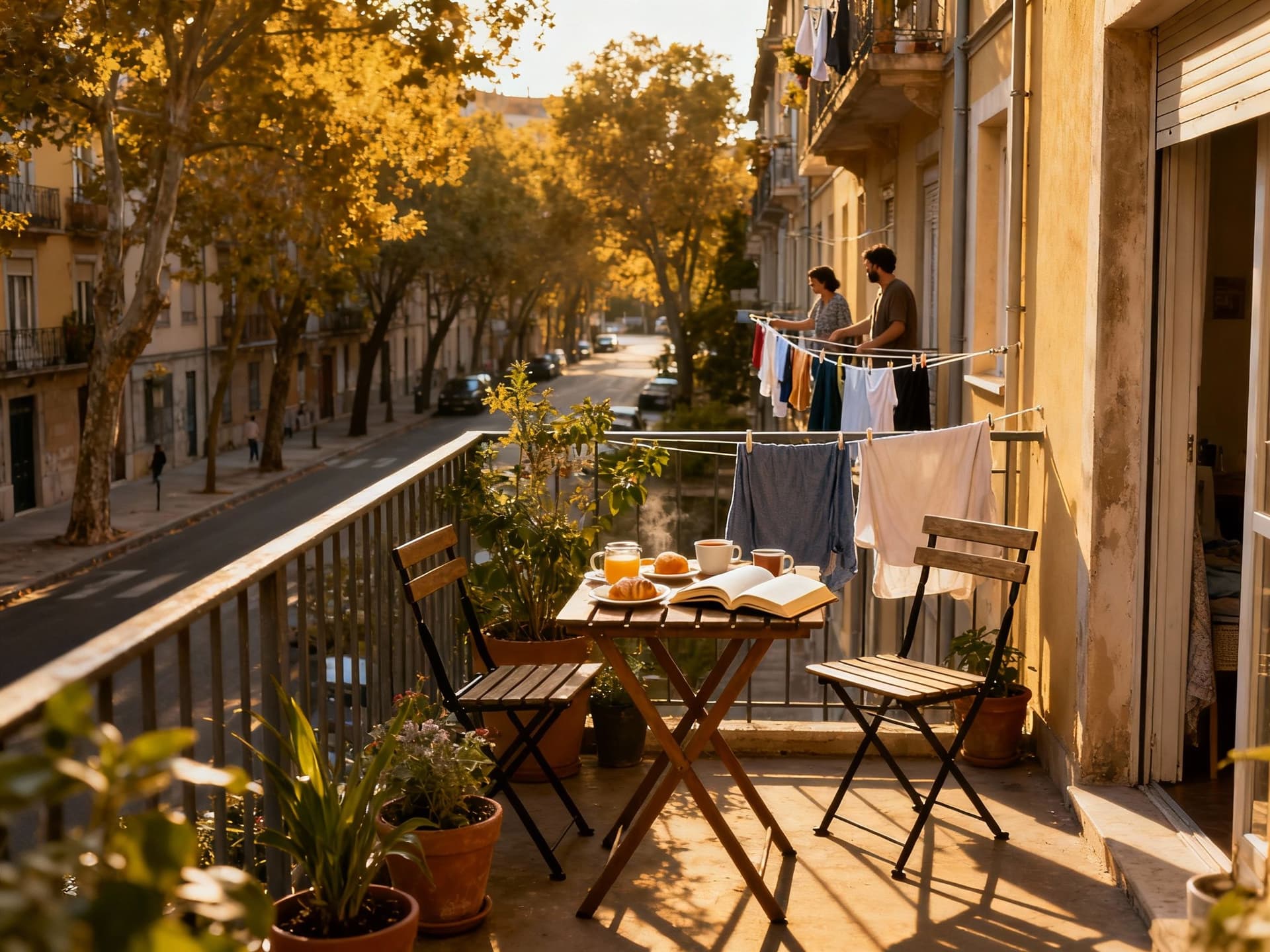
If lifestyle draws you in, the practical reality follows: prices vary by city and by type of property. National indices show near-stability in late 2024 with signs of rebound into 2025, but local performance is heterogeneous. That means a focused search — by arrondissement, by street, by building type — beats broad assumptions. Bring local market intelligence to the table before making offers.
Property types that match city living
In France’s urban hubs you’ll mostly choose between Haussmannian flats, post‑war apartments, modern lofts, and converted townhouses. Haussmann buildings offer proportion and light but often require concierge and renovation budgets. Converted lofts give open plans and higher ceilings but can be noisy and costly to insulate. Knowing how a property type supports your daily life — cooking, remote work, socialising — determines whether it’s a fit, not just the price tag.
How to marry lifestyle and legal reality
1. Start with neighbourhood visits at different times: mornings, market days and late evenings to feel actual life. 2. Ask for recent syndic (building management) minutes to reveal maintenance, disputes and unexpected charges. 3. Confirm energy performance and potential renovation needs — old systems are common and costly. 4. Secure a local notaire and a bilingual agent who can explain French-specific clauses like clause suspensive and frais de notaire. 5. Plan for transaction timelines—French sales can be patient; expect weeks of due diligence, not days.
Insider Knowledge: What Expats Wish They’d Known
Expats often say the surprise isn’t bureaucracy but social rhythm: shops close mid‑day, a long lunch is sacrosanct, and weekends are for neighbourhood markets rather than chains. That rhythm affects daily logistics — deliveries, renovation schedules, child activities — and in turn what property suits you. Integrating means adapting to tempo as much as learning the language.
Language, community and daily life
You don’t need fluent French to buy, but a few practical phrases and a bilingual advisor shorten timelines and reduce misunderstandings. Neighbourhood social life often happens at local cafés, playgrounds or market squares; showing up matters. International schools and expat clubs congregate in specific arrondissements—identify them early if family life matters.
Hard-earned lessons from buyers
Look beyond headline city averages—local microtrends determine value. Ask neighbours about the building’s heating, damp and noise; agents won’t always volunteer issues. Budget for syndic arrears and façade works in older buildings. Consider off-season visits—what feels quiet in August can be deceptively empty and mask year-round life. Use recent public data (INSEE, notaires) to test an agent’s pricing claims.
Local market signals to watch
Watch transaction volumes and time-on-market. A month-long dip in listings with stable prices suggests buyers are waiting, not fleeing. City-level notaires reports highlight that some provincial cities saw strong gains while larger metros experienced falls in 2024 — a reminder that 'urban' is not a single market. Use these signals to decide whether you want momentum or value.
Moving to France changes daily life: markets set the rhythm, cafés are informal offices, and public services are quietly efficient. If your dream is morning markets, afternoon boulangeries and evenings with friends under plane trees, there are urban hubs where that life is affordable and durable. The practical step is simple: pair a lifestyle shortlist with local market data and a notaire you trust. An experienced local agency translates the rhythm of a place into a realistic shortlist of properties — and protects you from assumptions that cost money.
Norwegian market analyst who serves Nordic buyers with transparent pricing and risk assessment. Specializes in residency rules and tax implications.
